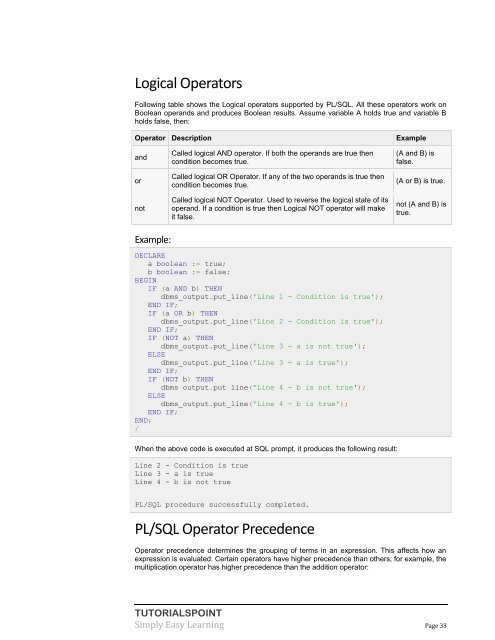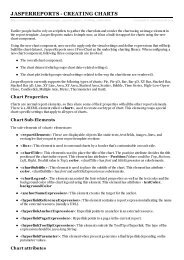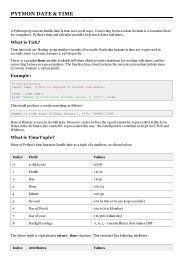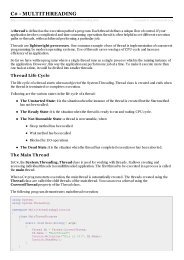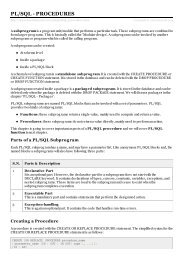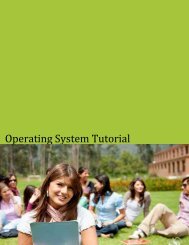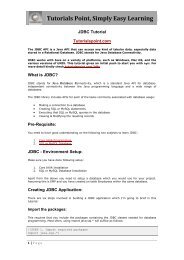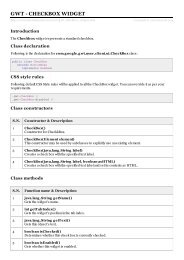download pl/sql tutorial (pdf - Tutorials Point
download pl/sql tutorial (pdf - Tutorials Point
download pl/sql tutorial (pdf - Tutorials Point
Create successful ePaper yourself
Turn your PDF publications into a flip-book with our unique Google optimized e-Paper software.
Logical Operators<br />
Following table shows the Logical operators supported by PL/SQL. All these operators work on<br />
Boolean operands and produces Boolean results. Assume variable A holds true and variable B<br />
holds false, then:<br />
Operator Description<br />
Exam<strong>pl</strong>e<br />
and<br />
or<br />
not<br />
Called logical AND operator. If both the operands are true then<br />
condition becomes true.<br />
Called logical OR Operator. If any of the two operands is true then<br />
condition becomes true.<br />
Called logical NOT Operator. Used to reverse the logical state of its<br />
operand. If a condition is true then Logical NOT operator will make<br />
it false.<br />
(A and B) is<br />
false.<br />
(A or B) is true.<br />
not (A and B) is<br />
true.<br />
Exam<strong>pl</strong>e:<br />
DECLARE<br />
a boolean := true;<br />
b boolean := false;<br />
BEGIN<br />
IF (a AND b) THEN<br />
dbms_output.put_line('Line 1 - Condition is true');<br />
END IF;<br />
IF (a OR b) THEN<br />
dbms_output.put_line('Line 2 - Condition is true');<br />
END IF;<br />
IF (NOT a) THEN<br />
dbms_output.put_line('Line 3 - a is not true');<br />
ELSE<br />
dbms_output.put_line('Line 3 - a is true');<br />
END IF;<br />
IF (NOT b) THEN<br />
dbms_output.put_line('Line 4 - b is not true');<br />
ELSE<br />
dbms_output.put_line('Line 4 - b is true');<br />
END IF;<br />
END;<br />
/<br />
When the above code is executed at SQL prompt, it produces the following result:<br />
Line 2 - Condition is true<br />
Line 3 - a is true<br />
Line 4 - b is not true<br />
PL/SQL procedure successfully com<strong>pl</strong>eted.<br />
PL/SQL Operator Precedence<br />
Operator precedence determines the grouping of terms in an expression. This affects how an<br />
expression is evaluated. Certain operators have higher precedence than others; for exam<strong>pl</strong>e, the<br />
multi<strong>pl</strong>ication operator has higher precedence than the addition operator:<br />
TUTORIALSPOINT<br />
Sim<strong>pl</strong>y Easy Learning Page 33


